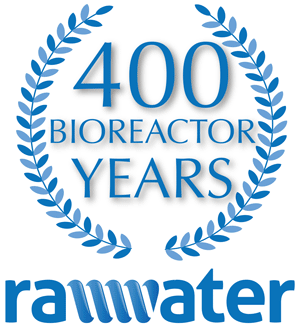Oilfield services specialist, Rawwater, has accrued the equivalent of 400 years’ worth of oilfield souring data at its UK-based pressurised bioreactor laboratories. This landmark figure was reached on 9th October 2018. It relates to the collection and analysis of more than 12 years of data, with at least 30 pressurised bioreactors running on a daily basis.
Rawwater has built and operates what is widely considered to be the world’s largest and most advanced facility to study and evaluate microbiological souring in simulated reservoir conditions. The organisation uses specially designed bioreactors that operate at pressure and temperature conditions as found in water-flooded oil reservoirs. With 400 years of souring data (and counting) to hand, Rawwater offers world-leading expertise in oilfield souring.
“Accurately simulating downhole field conditions is vital for correctly understanding both the beneficial and deleterious microbiological activity that occurs within the oil reservoir environment,” comments Rawwater managing director, Dr Robert Eden. “By operating bioreactors at pressures and temperatures that simulate near wellbore and deep reservoir conditions, we are able to identify the extent of microbiological souring (corrosive hydrogen sulphide), enabling highly appropriate and cost-effective treatment strategies to be established.”
Prior to the building of Rawwater’s first pressurised bioreactor suite, tests surrounding oilfield microbiology were largely conducted using simple sand and seawater ‘bottle tests’ or through the use of ‘up-flow’ sand packs at atmospheric pressure. Such tests, however, could not be used to draw accurate comparisons with actual downhole field conditions and biological activity, and could lead to inadequate or even unnecessary – and costly – chemical dosing programmes.
In 2003, Rawwater began running a number of pressurised bioreactors as part of an anaerobic corrosion study to establish whether particular dissolved gases could support microbiological growth. The success of the study was such that it was established that the process could be used to investigate the effect of pressure and temperature on oilfield microbiology. With the cost of oilfield reservoir souring control rumoured to consume as much as a third of typical production budgets, considerable interest was shown by oil majors and chemical service companies globally to develop this research tool further. This led to the birth of the ‘Seriatim’ series of work into oilfield souring and in excess of $10 million in funding for Rawwater to create its pressurised bioreactor dataset.
Rawwater’s major pressurised bioreactor programme commenced in 2006. At least 30 bioreactors, ranging from 20cm to 4 metres in length, are in operation at any one time. Operating conditions range from atmospheric pressure to 12,000psig, at temperatures from five degrees centigrade to just below the boiling point of water. Souring studies, including large-scale R&D joint industry projects (JIPs) and single client studies, have lasted from a matter of weeks to a number of years, and have been run on seawater and oil samples from major fields globally. The data harvested by Rawwater is truly unique in that it covers the complete range of operating conditions, including accurate chemistries at pressure and temperature.
Rawwater’s pressurised bioreactor studies are also used to feedback into the organisation’s DynamicTVS© oilfield reservoir souring forecasting model. A predictive software model that has been developed over many years, DynamicTVS© provides valuable insight into whether, when, and to what extent an oilfield reservoir will sour. The oilfield predictive software model uses operational, planning and survey data to generate future profiles of hydrogen sulphide in all fluid phases.


